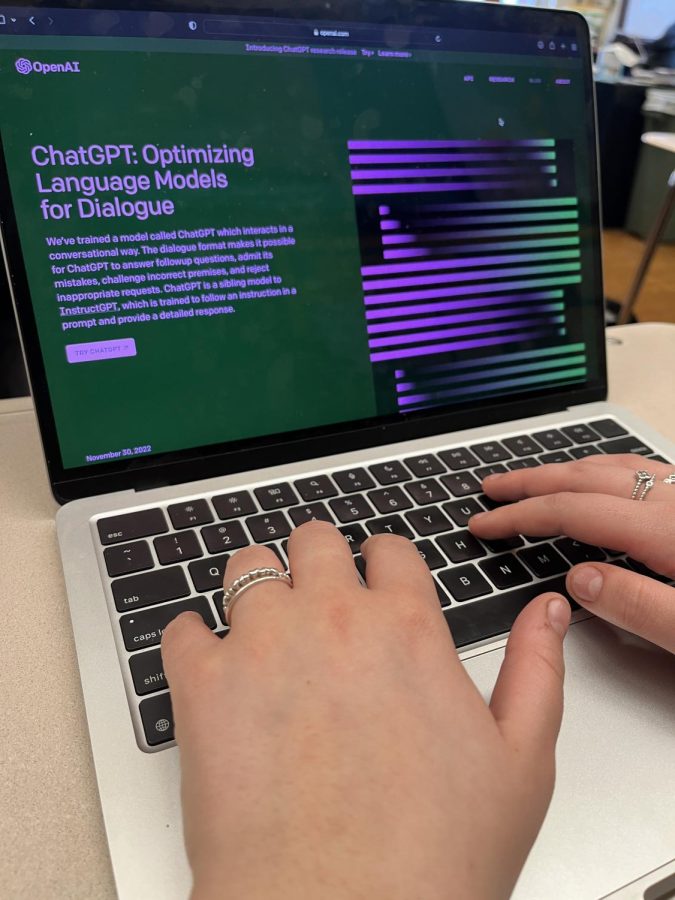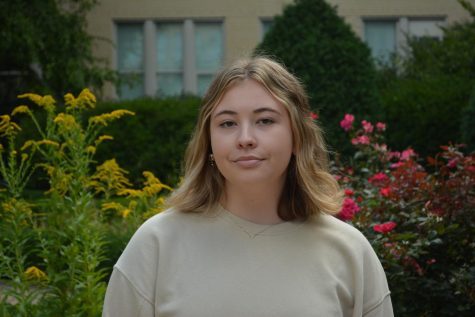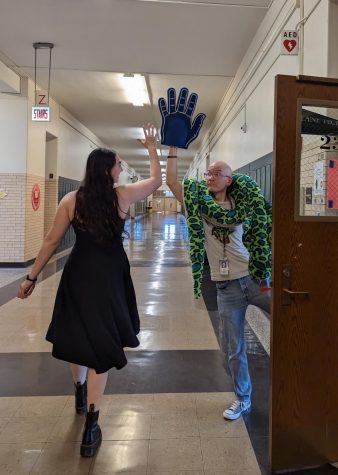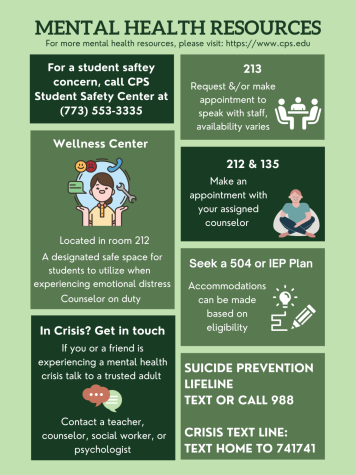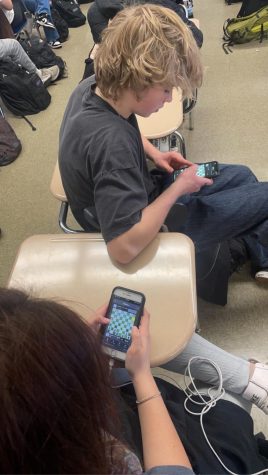Teachers wrestle with new ChatGPT AI technology
February 18, 2023
While teachers have raised concerns about ChatGPT, a new computer program that uses artificial intelligence (AI) to generate essays for students, CS teacher Robert Berg thinks that it could be a beneficial tool for students to utilize.
According to OpenAI, ChatGPT allows people to not only have a conversation with the program, but also to generate essays and quotes for them. It has a dialogue format that makes it possible for it to answer follow-up questions, admit its mistakes, challenge incorrect premises, and reject inappropriate requests.
Berg, who teaches Honors Artificial Intelligence, says that there are benefits to AI technology like ChatGPT, as it allows humans to focus more on the creativity of things rather than the structure.
“Technology changes and we adapt, and we utilize it,” Berg said. “So, the idea of ChatGPT and other AIs is that it will hopefully make our life easier, so it’s doing some of those tasks that we don’t want to do. Having a computer do that means we have more time to do the creative things. As humans, we are creative. We are creative beings, and if we can eliminate some of those tedious tasks, then it gives us more opportunity to be creative.”
Berg said that although students should not be using ChatGPT to copy and paste their entire essays, using it as a source would be a good substitution.
“Take for example Wikipedia. Growing up, we couldn’t use Wikipedia and we still say you can’t use Wikipedia as a source because it’s open source. Anybody can change Wikipedia so we can’t use it as a source,” Berg said. “So what I did is that you use Wikipedia as a stepping stone. We say, OK, well let’s look up this thing on Wikipedia, maybe we go to their sources and then we look up something from there. So it’s a great starting point. ChatGPT can be a similar thing.”
Dane Haiken, an English teacher, said some have compared ChatGPT to a calculator, explaining how math classes reacted to the invention of a calculator.
“I’ve heard it compared to what happened in math classes when the calculator was invented,” Haiken said. “Calculators are part of your math education, but your teachers aren’t saying ‘just punch it in’, right? Calculators help you think and understand how math works. It’s not replacing your understanding of math.”
Although Haiken believes that ChatGPT can be a good thing for the future, he mentions that there are still some gray areas to worry about.
“The reason why your teachers want you to write, and why it’s the cornerstone of an educational experience, is because writing is thinking,” Haiken said. “It really is a sort of philosophical problem, because it makes you stop and think like, OK, if you can get an AI to write a paper, then is writing important? It poses that question.”
Haiken summarized the view that ChatGPT could potentially be used as a tool in English classes rather than a device to cheat.
“There’s a school of thought that it’s going to be a really good tool for teaching kids about writing — like you can have an AI in literally five seconds generate an essay and then have students edit it and talk about where it’s weak and where it succeeds,” Haiken said. “Teachers for centuries have used other students’ writing to do that.”
Maximilian Matthes, a senior at Lane Tech, has his own viewpoint on ChatGPT’s negative potential.
“I feel like there is a lot of negativity surrounding it just because it has the ability to kind of dismantle the whole academia and the whole world of literature because obviously people can use it to their advantage and ways that might be malicious,” Matthes said.
However, similar to Haiken, Matthes said that ChatGPT can be beneficial for students and change how students write for the better.
“It’s helping me get my words out, and it’s helping me make my language more powerful because eventually I will use that to improve my own writing in the future, so I feel like we can use it as a tool for success in the future,” Matthes said.

